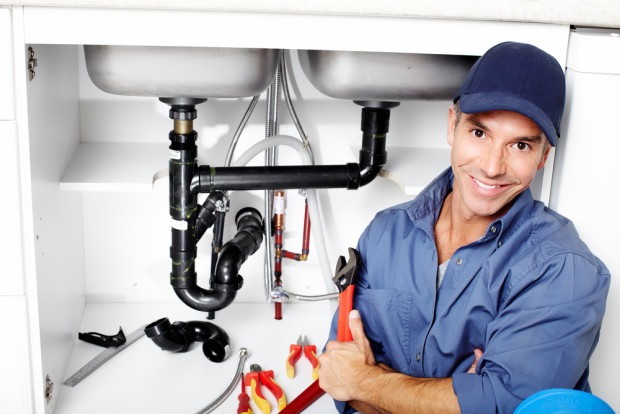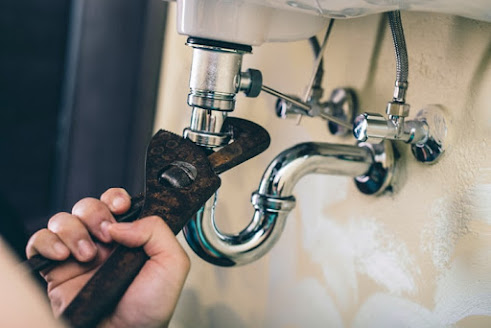We have uncovered this post on Why Do My Pipes Make Noises below on the internet and think it made sense to write about it with you here.

To detect loud plumbing, it is essential to establish initial whether the unwanted noises happen on the system's inlet side-in various other words, when water is transformed on-or on the drainpipe side. Noises on the inlet side have varied reasons: too much water stress, worn valve as well as tap components, poorly connected pumps or various other devices, inaccurately positioned pipe bolts, and also plumbing runs containing way too many limited bends or various other constraints. Sounds on the drainpipe side generally originate from inadequate area or, similar to some inlet side sound, a format containing limited bends.
Hissing
Hissing sound that takes place when a tap is opened slightly generally signals excessive water pressure. Consult your local water company if you suspect this trouble; it will certainly have the ability to inform you the water stress in your location and also can set up a pressurereducing shutoff on the inbound water system pipeline if necessary.
Thudding
Thudding noise, often accompanied by shuddering pipes, when a faucet or device shutoff is shut off is a problem called water hammer. The noise as well as vibration are caused by the resounding wave of stress in the water, which all of a sudden has no place to go. Sometimes opening up a valve that releases water promptly right into a section of piping having a constraint, arm joint, or tee installation can create the exact same problem.
Water hammer can normally be cured by mounting installations called air chambers or shock absorbers in the plumbing to which the problem shutoffs or faucets are connected. These gadgets permit the shock wave produced by the halted circulation of water to dissipate in the air they contain, which (unlike water) is compressible.
Older plumbing systems might have short upright areas of capped pipe behind wall surfaces on faucet runs for the exact same objective; these can ultimately fill with water, reducing or damaging their efficiency. The cure is to drain pipes the water system completely by shutting off the main water valve and also opening all faucets. After that open the primary supply valve as well as close the taps one at a time, beginning with the faucet nearest the shutoff and also ending with the one farthest away.
Babbling or Shrieking
Intense chattering or shrilling that happens when a valve or tap is activated, which usually goes away when the fitting is opened completely, signals loose or malfunctioning internal components. The service is to replace the shutoff or faucet with a new one.
Pumps and also home appliances such as washing devices and also dishwashers can transfer electric motor noise to pipes if they are poorly connected. Connect such things to plumbing with plastic or rubber hoses-never stiff pipe-to isolate them.
Various Other Inlet Side Noises
Creaking, squealing, damaging, snapping, and also tapping generally are triggered by the development or contraction of pipelines, generally copper ones providing hot water. The noises take place as the pipes slide versus loose fasteners or strike neighboring home framework. You can often identify the location of the problem if the pipelines are exposed; just adhere to the sound when the pipelines are making sounds. Most likely you will certainly discover a loose pipeline wall mount or an area where pipelines exist so close to floor joists or various other mounting pieces that they clatter versus them. Attaching foam pipe insulation around the pipelines at the point of call should fix the problem. Make sure bands and hangers are safe and also provide adequate support. Where possible, pipeline bolts need to be attached to huge structural elements such as foundation wall surfaces as opposed to to mounting; doing so decreases the transmission of resonances from plumbing to surfaces that can enhance and transfer them. If attaching bolts to framework is inescapable, cover pipelines with insulation or various other resilient material where they contact fasteners, and also sandwich completions of brand-new bolts between rubber washers when mounting them.
Dealing with plumbing runs that deal with flow-restricting limited or many bends is a last option that should be undertaken just after seeking advice from a competent plumbing professional. Sadly, this situation is rather typical in older houses that might not have actually been developed with indoor plumbing or that have seen numerous remodels, particularly by amateurs.
Drainpipe Sound
On the drain side of plumbing, the chief goals are to remove surfaces that can be struck by falling or hurrying water as well as to protect pipes to consist of inevitable sounds.
In brand-new building, bathtubs, shower stalls, commodes, as well as wallmounted sinks and containers ought to be set on or against resistant underlayments to decrease the transmission of sound via them. Water-saving bathrooms and taps are less loud than traditional models; mount them rather than older kinds even if codes in your location still permit making use of older fixtures.
Drains that do not run up and down to the cellar or that branch into straight pipeline runs supported at flooring joists or various other framing existing particularly troublesome noise problems. Such pipelines are big enough to emit considerable resonance; they likewise lug considerable quantities of water, that makes the situation even worse. In brand-new building and construction, define cast-iron dirt pipes (the big pipelines that drain pipes toilets) if you can manage them. Their massiveness has much of the sound made by water going through them. Also, stay clear of transmitting drainpipes in walls shared with bed rooms and spaces where individuals gather. Walls consisting of drainpipes must be soundproofed as was described previously, using dual panels of sound-insulating fiber board and also wallboard. Pipes themselves can be wrapped with special fiberglass insulation created the objective; such pipelines have an impervious vinyl skin (in some cases including lead). Results are not constantly satisfying.
Pipe Down! What to Do About Noisy Water Pipes
Banging
Does it sound like someone's hitting your pipes with a hammer every time you run water? The issue could be a phenomenon called water hammer, which happens when a water valve closes suddenly. You'll often hear it when your washing machine stops filling, for example. The momentum and pressure from the water flowing toward the valve create the shockwave that causes the banging noise when the valve closes suddenly. It might not seem like a big deal, but water hammer can cause damage to your pipes, including leaks and joint damage.
One way to ease water hammer is by installing water hammer arrestors. Your plumber can install them near major valves to help cushion the shock of the water when it suddenly stops or changes direction. You might also need to reduce the water pressure coming into your home with the pressure-reducing valve.
Gurgling
Gurgling sounds typically come from drainpipes. This sound happens when the water can't drain properly, usually when there's a clog in the water pipes. Drain clogs often happen due to hair, grease, soap scum or objects that fall down the drain. They can happen suddenly or build up slowly over time.
You can sometimes clear a clogged drainpipe with a plunger to help force the clog through the pipe. A plumbing snake or an auger can also help break up tough clogs. A common plumbing myth is that chemical drain cleaners are safe and effective, but they often don't work and contain harsh chemicals that can hurt you and your plumbing. If you can't remove the clog with a plunger or snake, it's best to call a plumber to help.
Rattling
Water travels through your pipes with lots of pressure, so the pipes are bound to move a little. Pipes should be secured well to keep them from moving too much when water runs through them. If they're not properly fastened or the fasteners come loose, you might hear them rattling when you run water.
Resecuring the pipes can cut down on the rattling noise and prevent damage to the joints of the water pipes. However, many pipes run behind walls where you can't easily access them. A plumber can help determine if loose fasteners are the cause of the rattling and resecure them if necessary.
Humming
If your pipes sound like they're humming, it's likely a water pressure issue. When the water pressure is high, it can cause the water pipes to vibrate and create a humming sound. High water pressure is more common if you have a well for your water, but it can happen with municipal water as well. High water pressure can damage your plumbing and cause leaks.
If you have a well, check the pressure to ensure it's below 55 pounds per square inch. A plumber can test the pressure for you and help adjust the issue if you're not sure how to do it yourself. If you're connected to the municipal water source, your home likely has a pressure-reducing valve near where the water enters your home. You can adjust the screw in the valve to decrease the pressure, but be careful not to lower it too much.
Squeaking
Squeaking or squealing is another common sound you'll hear in your water pipes. This often happens if small components within the plumbing, such as washers or aerators, become loose, dirty or damaged. When this is the cause, the squeaking sound is usually confined to a certain fixture or area of plumbing. Replaced or repairing the part should solve the noise.
If you can hear the squealing sound everywhere in your home, it could be an issue with water pressure. Buildup in the pipes narrows the space for the water, which can cause squealing as the water tries to squeeze through the pipes. Wear and tear on the plumbing system can also cause whistling or squeaking. These situations typically require a professional plumber to diagnose and repair.
https://www.homeserve.com/en-us/blog/home-improvement/water-pipes-making-noise/

I am very taken with Why is My Home Making Strange Plumbing Noises and I hope you liked the article. In case you enjoyed reading our blog post please be sure to pass it around. I value reading our article about Why is My Home Making Strange Plumbing Noises.
Rates